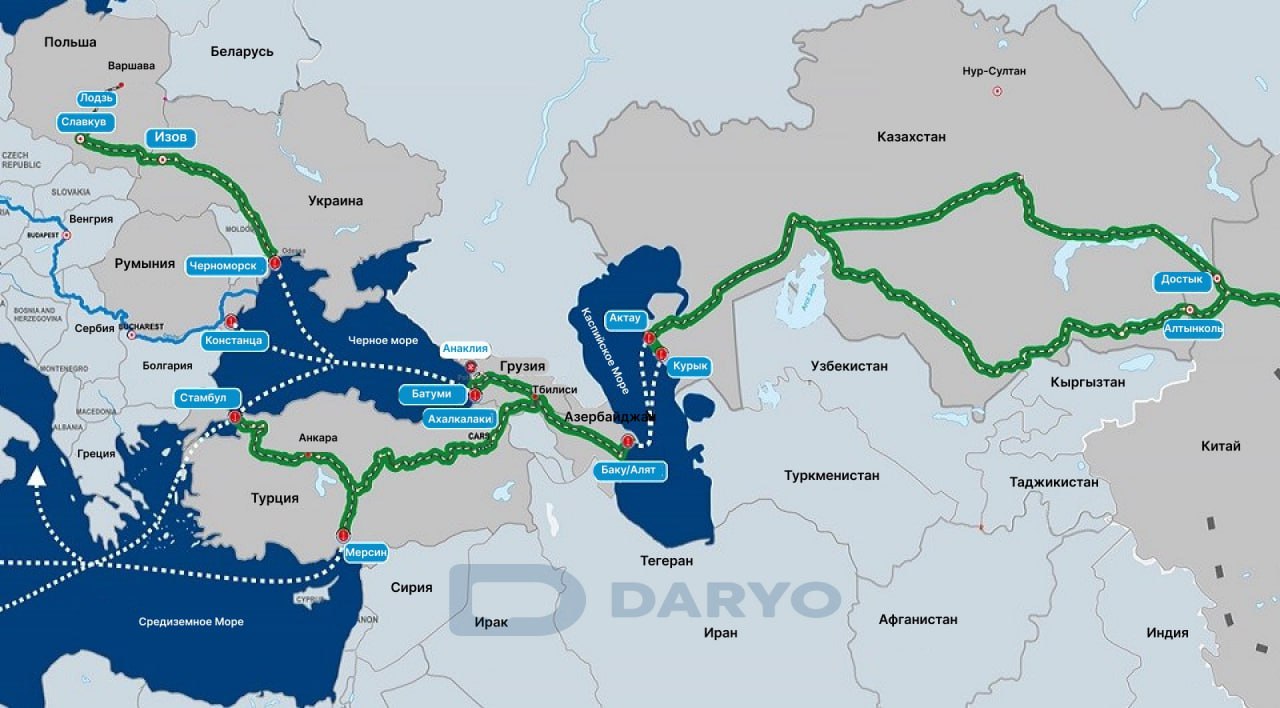In a recent interview with Daryo, political scientist Oybek Sirojov highlighted growing global tensions and the increasing focus on alternative land routes due to restrictions on sea routes. He emphasized that most of these land routes connecting China with Europe pass through Central Asia, making it crucial for the region's five countries to develop a unified strategy.

The majority of overland routes to Europe go through Central Asia. However, the issue is that the countries in the region lack a common stance on this matter. Therefore, the five nations must collaborate to establish a shared strategy and effectively communicate this to global powers. This approach will yield better results,
Sirojov stated.
He further argued that China's "One Belt, One Road" initiative, rather than uniting Central Asian countries, could potentially lead to their division.
Take China's 'One Belt, One Road' project, for example. It does not aim to unify the region. By constructing separate routes through Kazakhstan, Kyrgyzstan, Tajikistan, and Afghanistan, China positions itself to divide these countries in the future. If China desires, it can route its goods to Europe via Kazakhstan, or through Uzbekistan, keeping the primary leverage in its own hands. However, if the Central Asian countries develop a unified approach, China will be less able to manipulate the situation, Sirojov explained.
Sirojov explained.
Meanwhile, the launch of the China-Kyrgyzstan-Uzbekistan railway is anticipated in August this year, following a cooperation agreement signed by the governments of the three countries on June 6 in Beijing.
Follow Daryo's official Instagram and Twitter pages to keep current on world news.
Comments (0)